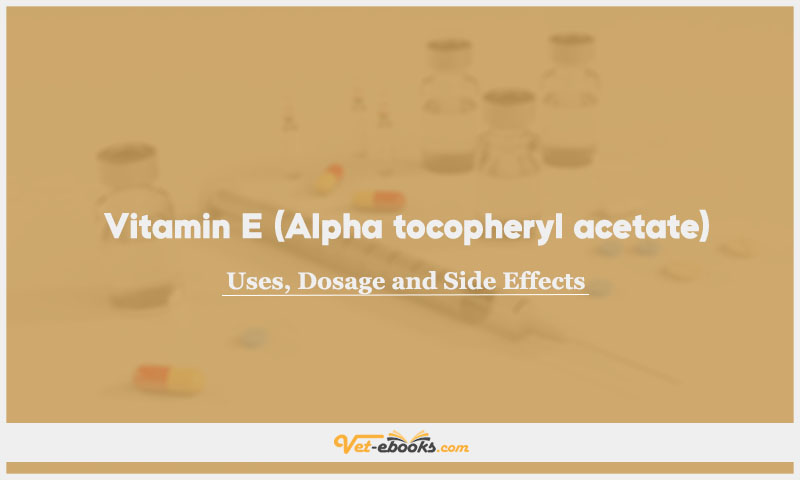Vitamin C (Ascorbic acid) In Dogs & Cats: Uses, Dosage and Side Effects

Overview
- Water-soluble antioxidant, also critical for cross-linking collagen precursors (growth and repair of tissue) and is involved in protein, lipid and carbohydrate metabolism.
Uses of Vitamin C (Ascorbic acid)
- Vitamin C is used to reduce methaemoglobinaemia associated with paracetamol toxicity.
- Supplemental vitamin C may be required in conditions of increased oxidative stress, in cachexic patients and in those requiring nutritional support.
Dose of Vitamin C (Ascorbic acid) in Dogs and Cats
Dogs, Cats:
- Methaemoglobinaemia: 30–40 mg/kg s.c. q6h for 7 treatments.
Drug Dosage Calculator
You Should Give:
Side Effects of Vitamin C (Ascorbic acid) in Dogs and Cats
- May cause anaphylaxis if given intravenously.
- Vitamin C supplementation may increase liver damage by increasing iron accumulation.
- Prolonged use can increase the risk of urate, oxalate and cystine crystalluria and stone formation.
Contraindications of Vitamin C (Ascorbic acid) in Dogs and Cats
- Avoid use in patients with liver disease.
Some Notes:
- Large doses (oral or injectable) will acidify the urine and may increase the renal excretion of some drugs (e.g. mexiletine) and reduce the effect of some antibacterial drugs in the genitourinary system (e.g. aminoglycosides).
Tip
Do You Want To Increase Your Veterinary Knowledge and Practical Skills?
You Can Now Browse and Download +3000 Books For Veterinary Professionals & Students Online.
Download Veterinary Books




















